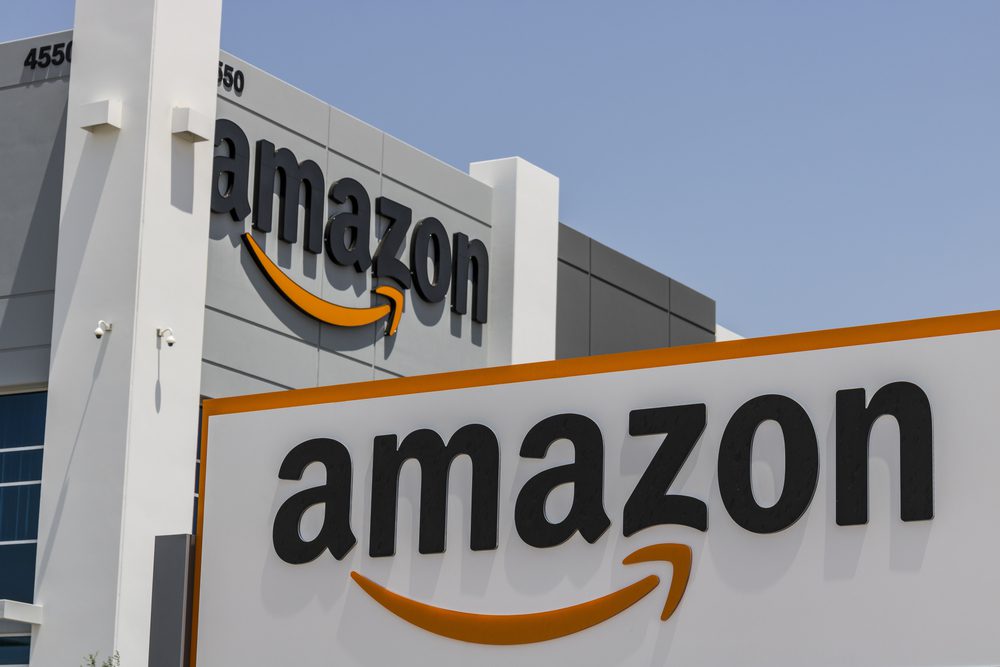In a move similar to the collaboration that Walmart announced with Tesla in late 2017, Amazon has announced that the e-commerce giant has invested in a slew of Rivian electric delivery trucks and is hopeful some of them will be on the road in 2021. Amazon CEO Jeff Bezos recently revealed “The Climate Pledge,” which outlines Amazon’s plan to “meet the Paris Agreement 10 years early” and become carbon-neutral by 2040. Rivian’s electric vans would be used to deliver millions of packages to Amazon customers, including Amazon Prime members who are eligible for same-day or next-day delivery. 
Amazon announced it has placed an order for 100,000 electric vans, which is a stark difference from the 15 Tesla semis Walmart initially ordered back in 2017. At the time, Walmart stated the purchase would hopefully help the company “meet some of our long-term sustainability goals, such as lowering emissions.” Amazon, however, is clearly taking a much more aggressive approach in placing the large order.
According to Bezos, “If a company with as much physical infrastructure as Amazon—which delivers more than 10 billion items a year — can meet the Paris Agreement 10 years early, then any company can.” Earlier in 2019, Amazon made a $440 million investment in Rivian’s technologies, making many experts believe that Amazon is serious about fulfilling its climate pledge.
Rivian also has a strong backing by Ford, which invested $500 million, and Cox Automotive, which invested $350 million at that time. This goes to show that not only are smaller companies willing to invest large chunks of money in electric vehicles, but huge, prominent corporations are getting involved in the industry as well. The unique-looking Rivian vans are expected to serve all of Amazon’s distribution centers as well as Whole Foods stores.
Rivian emerged full force into the spotlight at the Los Angeles Auto Show in November of 2018 when R.J. Scaringe, Rivian’s founder and CEO, showcased its R1T pickup truck (MSRP $68,000) and its R1S SUV (MSRP $72,500). Back in February, Scaringe told Forbes that he has always been intrigued with “things that move,” especially vehicles. Even as a young teenager in high school, he dreamed of building his own automobiles.
Now, it appears he has fulfilled his goal and with the funding his ideas are receiving, it seems he potentially has the tools to make his high school dreams a prosperous reality.
Back in 2017, Rivian purchased a 2.6 million square foot assembly plant in Illinois that will be used to manufacture the delivery vans. Amazon stated that the vans would begin delivering orders to Amazon customers in 2021 and plans to have 10,000 of them running by 2022. Ultimately, Amazon is aiming to have all 100,000 electric vans on the road by 2030. According to Kim Hastings of Gildshire, Amazon claims that having the entire fleet on the road “will net savings of 4,000,000 metric tons of carbon a year.” Amazon is also planning on staying true to its climate pledge by investing in solar energy and carbon offsets.
Walmart and Tesla are currently embroiled in a legal battle regarding solar panel systems and Tesla has postponed production of its semi trucks until 2020, so the future of that collaboration is not clear yet. So far, however, the partnership between Rivian and Amazon looks like it will be a strong one. Time will tell if electric delivery vans will pan out as hoped, but the collaboration between the two companies is a positive step in what seems to be a serious effort to create a cleaner environment.








